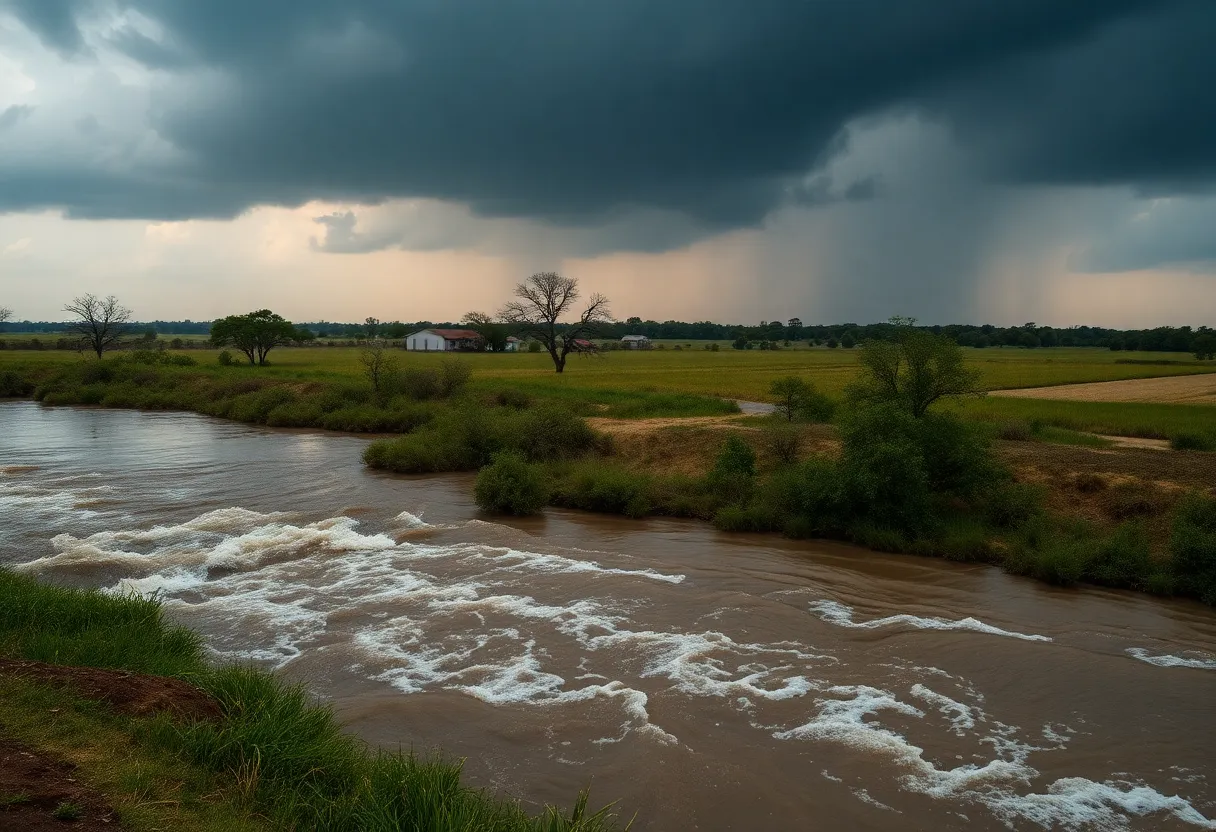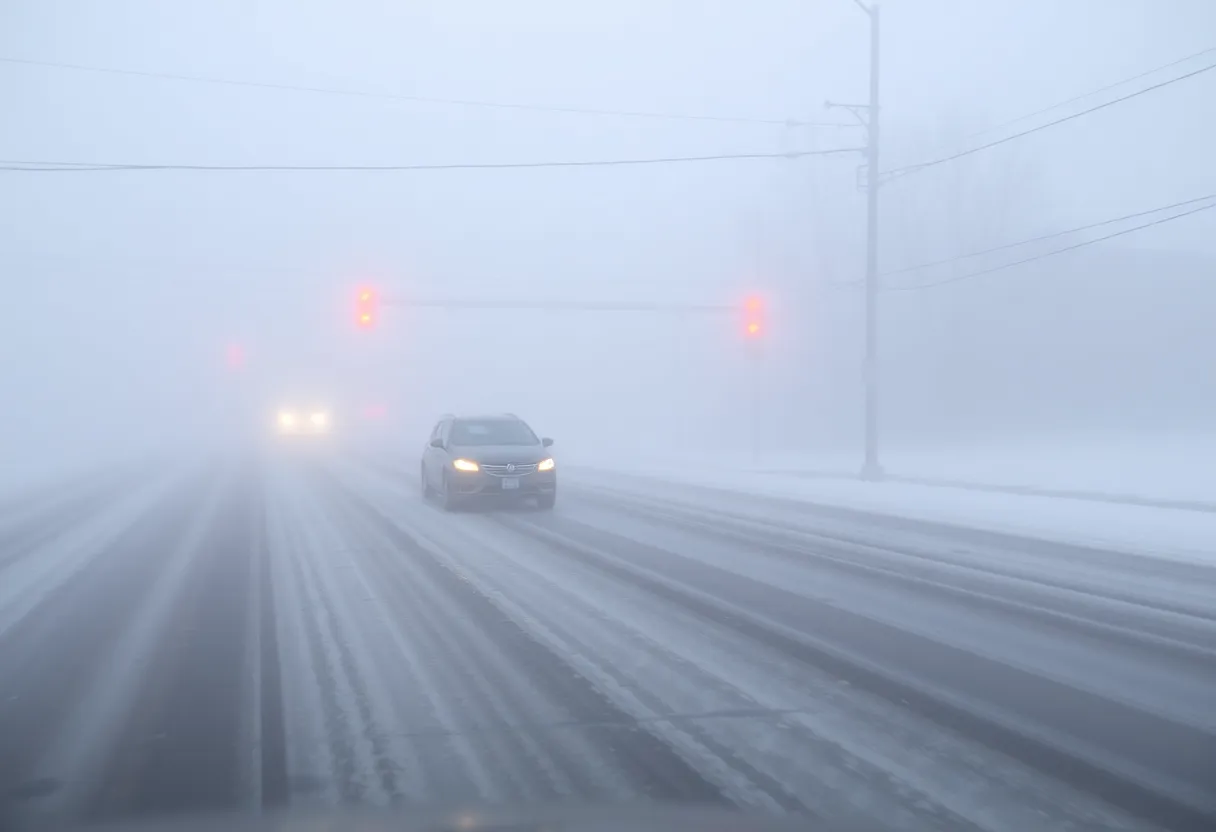News Summary
Central Texas experienced catastrophic flash flooding over the Fourth of July weekend, resulting in over 100 fatalities, many of whom were children at summer camps near the Guadalupe River. The severe weather was caused by unprecedented rainfall, raising the river almost 26 feet in just three hours. Many residents, unaware of serious flood warnings, faced the sudden danger of rapid flooding. This incident highlights the need for preparedness and awareness regarding severe weather events, especially in flood-prone areas.
Central Texas
Catastrophic flash flooding over the Fourth of July weekend in Central Texas has claimed the lives of over 100 individuals, many of whom were children attending summer camps near the Guadalupe River. This tragic event serves as a stark reminder of the dangers posed by sudden and severe weather phenomena.
Heavy Rainfall Causes Rapid River Rise
The devastation was precipitated by intense downpours that unleashed over a month’s worth of rain in just a few hours. This unprecedented rainfall caused the Guadalupe River to rise nearly 26 feet in only three hours, leading to swift and dangerous flooding that caught many residents off guard.
Warnings Ignored in the Night
Serious flood warnings issued during the overnight hours went largely unnoticed as many residents were asleep. These warnings, which could have provided critical information for residents, highlighted the importance of heeding flood alerts, especially in such vulnerable conditions.
Understanding Flash Floods
This incident brings attention to the critical distinctions between regular flooding and flash flooding. Floods generally occur over days or weeks, caused by sustained heavy rain or snowmelt upstream. In contrast, flash floods occur rapidly within minutes to hours due to heavy rainfall in smaller creeks, rivers, and streams, making them far more dangerous.
Flash Flood Watches, which are issued hours or days in advance of potential flash flooding, alert residents to the possibility of severe weather. However, the issuance of a Flash Flood Warning signifies that flooding is either occurring or is imminent, requiring immediate attention and action from those in affected areas.
Categories of Emergency Alerts
The National Weather Service employs a multi-tiered alert system that includes Flood Watches, Flash Flood Warnings, and Flood Emergencies. Alerts for flash flooding are crucial and are sent directly to mobile devices. A Flash Flood Emergency indicates life-threatening conditions that require immediate action from residents.
Factors Contributing to Rapid Flooding
Flash flooding can also arise from dam failures and can impact areas that are not directly adjacent to waterways. Low-lying regions, under bridges, and areas close to drainage ditches are particularly vulnerable to these sudden surges of water. Additionally, smaller waterways tend to rise more quickly than larger rivers, which may experience a more gradual increase in water levels.
Preparedness and Insurance for Flooding
Homeowners living in flood-prone areas are encouraged to consider obtaining flood insurance, as standard homeowners’ policies often do not cover flood damage. Communities situated near waterways vulnerable to flooding are advised to remain prepared and to act quickly when severe weather arises.
As seen in Memphis and the Mid-South, flash flooding is a common occurrence during the spring and summer months, where heavy rains can lead to rapid roadway flooding, underscoring the necessity of vigilance during such weather patterns.
Significance of Effective Communication
For optimal safety, utilizing NOAA Weather Radio remains one of the most effective ways to receive timely alerts regarding flood conditions. This ensures that residents remain informed and can take the necessary precautions in the face of potential disasters.
Conclusion
The Fourth of July weekend flash flooding in Central Texas serves as a poignant reminder of nature’s unpredictability. The tragic loss of life, especially among vulnerable populations like children, emphasizes the need for heightened awareness and preparation for severe weather events.
Deeper Dive: News & Info About This Topic
HERE Resources
Severe Weather Prompts Governor’s Emergency Measures Across Texas
Historic Flooding Grips the South and Midwest
Mid-South Faces Severe Weather: Tornadoes and Flooding
Record Rainfall Causes Severe Flooding Across Mid-South
Severe Weather and Pertussis Crisis Hit Memphis Area
Central US Faces Severe Weather and Flooding Risks
Severe Tornado Outbreak Causes Widespread Destruction Across U.S.
Massive Storm System Threatens Over 100 Million Americans
Severe Weather Alert: A Weekend of Storms Ahead!
Atlantic Braces for Potential Hurricane Activity: What Coastal Residents Need to Know
Additional Resources
- Local Memphis: Flash Flooding Risk Map
- Wikipedia: Flash Flood
- Fox13 Memphis: Daily Storms and Humidity
- Google Search: Flash Flooding in Mid South
- WREG: Flash Flooding Causes Crashes
- Google Scholar: Flash Floods and Safety
- Commercial Appeal: Texas Flooding
- Encyclopedia Britannica: Weather Warnings
- Daily Memphian: April Weather in Memphis
- Google News: Flooding Preparedness

Author: STAFF HERE MEMPHIS WRITER
The MEMPHIS STAFF WRITER represents the experienced team at HEREMemphis.com, your go-to source for actionable local news and information in Memphis, Shelby County, and beyond. Specializing in "news you can use," we cover essential topics like product reviews for personal and business needs, local business directories, politics, real estate trends, neighborhood insights, and state news affecting the area—with deep expertise drawn from years of dedicated reporting and strong community input, including local press releases and business updates. We deliver top reporting on high-value events such as Beale Street Music Festival, Elvis Week, and Memphis in May International Festival. Our coverage extends to key organizations like the Greater Memphis Chamber and the Memphis Convention & Visitors Bureau, plus leading businesses in logistics, healthcare, and music that power the local economy such as FedEx, St. Jude Children's Research Hospital, and AutoZone. As part of the broader HERE network, including HEREBristol.com, HEREChattanooga.com, HEREKnoxville.com, and HERENashville.com, we provide comprehensive, credible insights into Tennessee's dynamic landscape.






